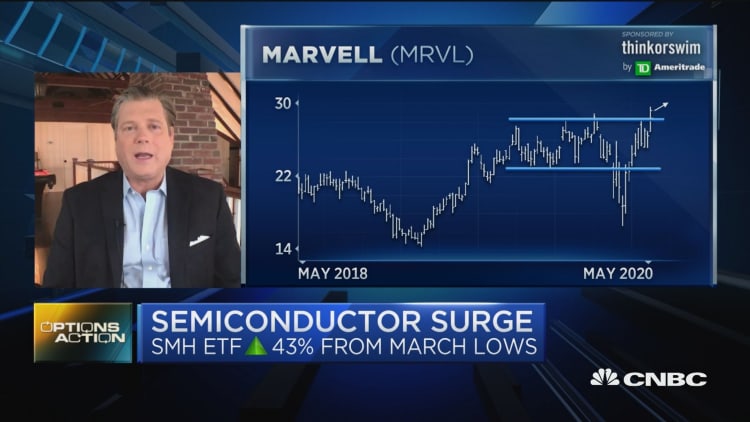China's largest contract chipmaker, Semiconductor Manufacturing International Corporation (SMIC), has filed for a listing in Shanghai that will raise 20 billion yuan ($2.8 billion).
The move comes as the company looks to bolster investment in its technology amid the escalating trade tensions between the U.S. and China, which could force SMIC to take on more production.
SMIC, which is already listed in Hong Kong, has been looking to raise cash to do that. It got a $2.2 billion investment from state investors last month.
The company is part of China's broader push for self-reliance when it comes to semiconductors, a field in which the world's second-largest economy is seen as far behind the U.S. But China's efforts have been given greater impetus as Washington continues its technology war with Beijing.

Huawei has been one of China's companies targeted by U.S. sanctions. Last year, it was put on a U.S. blacklist called the Entity List which restricted its access to American technology. In May, the Trump administration introduced a rule which requires foreign manufacturers using U.S. chipmaking equipment to get a license before being able to sell semiconductors to Huawei.
That rule is likely to affect Taiwan's TSMC, which makes most of the chips Huawei designs for devices such as smartphones. If Huawei cannot get hold of semiconductors from TSMC, it may have to look for alternatives such as SMIC. But experts have previously told CNBC that SMIC's technology is far behind TSMC.
The recent cash injection, therefore, could be a boost for the company as it looks to rapidly expand its capabilities.
In its listing prospectus, SMIC said that the U.S.-China trade frictions and Washington's latest rules on semiconductors could be headwinds for the company.


